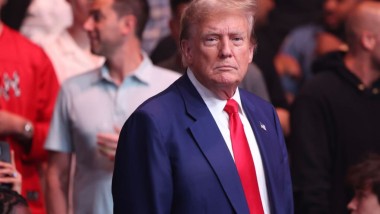Supreme Court says marketer is not entitled to a trademark for 'Trump too small' T-shirts
The phrase “TRUMP TOO SMALL” stems from a memorable moment in the 2016 Republican presidential debates, during which Sen. Marco Rubio, R-Fla., made a crude joke about the size of Trump’s hands.
“And you know what they say about guys with small hands,” Rubio quipped.



Add comment